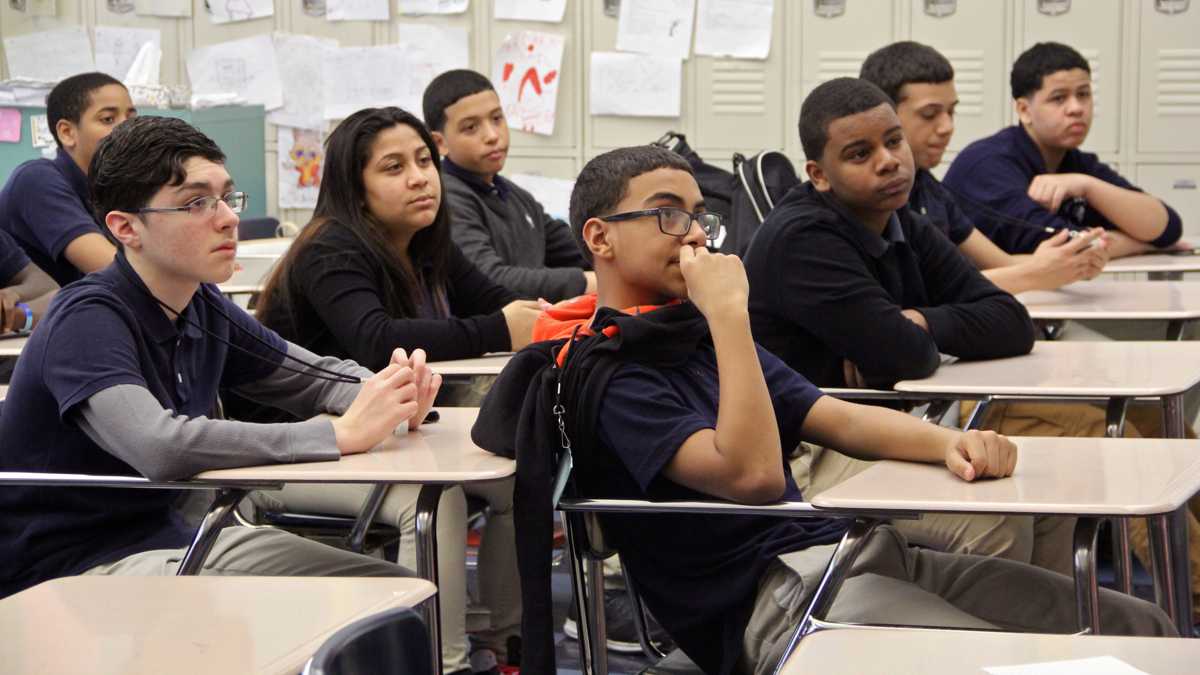Pa. department of education enhancing oversight of charter schools

The Pennsylvania Department of Education is adding a new division that specifically monitors charter schools. Some charter advocates fear this new division and oversight may be an overreach and a “duplicate of service.” (Emma Lee/WHYY)
Charter advocates fear overreach.
Pennsylvania Gov. Tom Wolf announced Wednesday that he’s beefing up the state’s oversight of charter schools by creating a new division within the Department of Education devoted solely to the sector.
“Charter schools play an important role in our education system, but that role must be accompanied by sufficient oversight,” Wolf said in a statement. “Establishing this new division within the Department of Education will allow us to maximize our resources to not only ensure charters are being properly supported, but that they are being held accountable to taxpayers.”
The Wolf administration says the new division more rigorously monitor the fiscal and academic integrity of charters.
“Establishing a division within the Department is the next step to further streamline communication with charter schools, help ensure they receive needed technical assistance from the Department, and ensuring that all public schools in the commonwealth are held to the same high-quality standards,” said state education secretary Pedro Rivera in a statement.
Wolf spokesman Jeffrey Sheridan said the move will simply bring the charter sector in line with the oversight the department gives the state’s 500 traditional districts.
“All of those things already happen with traditional public schools,” said Sheridan. “They do not currently happen in the manner that they should with brick-and-mortar and cyber charter schools.”
The division will take a specific interest in the health of the cyber charter sector — schools which are authorized at the state level and, overall, have a track record of poor performance.
The announcement received tepid reception from charter advocates who see Wolf as too hostile to the sector.
“We are cautiously optimistic, but the charter community has been burned before and our honest initial impression is that this may be another effort to undermine school choice in Pennsylvania, regardless of the statements in the press release regarding improving quality and accountability,” said Robert Fayfich, executive director of the Pennsylvania Coalition of Public Charter Schools. “We are anxious to work with [Pennsylvania Department of Education] on this initiative if we are invited to do so, but time will tell the real purpose and value of this new charter office.”
Tim Eller, who is now the executive director of Keystone Alliance for Public Charter Schools, had been the spokesman for the department of education under former Gov. Tom Corbett.
He says this division amounts to a “duplication of service,” one crafted to help Wolf score points with traditional school advocates.
“What the announcement is today is something that has already existed, and been existing in the Department of Education for many years,” said Eller.
The new division will be paid for out of the department’s existing budget. It will consist of four employees including a chief.
Both the Wolf administration and the charter advocates agree that the state’s 20-year-old charter law is badly in need of revision, but consensus hasn’t been reached on exactly what those changes should look like.
Momentum grew in early July for a reform bill that traditional advocates believe is too charter-friendly. It was punted to the Fall’s legislative session in order to avoid prolonging resolution on the state budget.
The Wolf administration has also been game-planning for reforms that would affect traditional schools. As part of the recently approved Every Student Succeeds Act, the federal government gives states more autonomy to devise their own policies.
The Department of Education has been gathering input from stakeholders about the role of standardized tests, the credentials needed to become an educator, as well as the shape of accountability systems that measure the effectiveness of schools and teachers.
WHYY is your source for fact-based, in-depth journalism and information. As a nonprofit organization, we rely on financial support from readers like you. Please give today.



